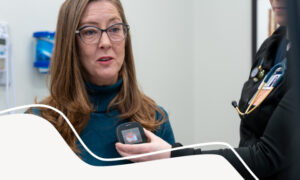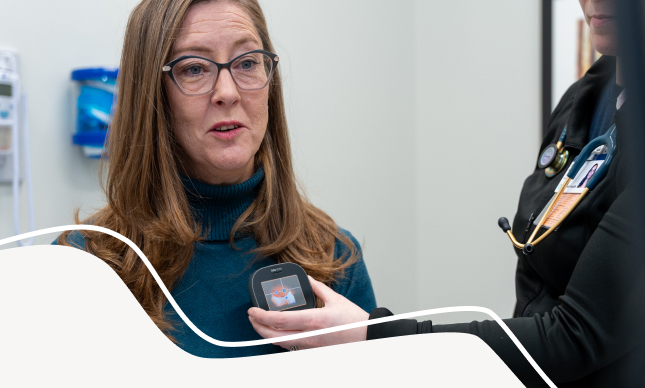How virtual care can accelerate the shift to value-based care

As more healthcare systems work towards launching value-based plans, virtual care is proving to be a key factor in making that shift successful. Barry Arbuckle, President and CEO of MemorialCare joined Tamir Gotfried, CCO of TytoCare, to discuss how MemorialCare leveraged remote care to shift its care models towards value-based. Click here to view the full webinar.
Why value-based care is better in the long run
In the past, most healthcare systems worked on a fee-for-service basis. Barry Arbuckle shared that he believes that this approach is unsustainable for the US healthcare system due to the escalating costs for payers. At face value, operating according to a fee-for-service model would appear to be more profitable for providers. However, Arbuckle noted that value-based care actually reduces costs in the long run.
Historically, patients have been directed to hospital outpatient centers for procedures and tests, which could technically also be conducted in ambulatory centers at a lower price point. Arbuckle noted that studies have shown that ambulatory sites provide the same quality, if not better, than in the typical hospital-based setting. In a value-based model, because access is important, patients can be routed to an ambulatory center at a more convenient location to receive the required care rather than to a hospital – this results in lower costs for quality care. Arbuckle pointed out that patients have a better experience when there are ambulatory centers that they can more easily access.
How virtual care supports the shift toward value-based care
An important component of value-based care is improving access to care. Arbuckle noted that virtual care increases access to care exponentially. For example, patients can access care with a doctor through virtual visits in the middle of the night, rather than going to an emergency room.
Arbuckle shared that partnering with TytoCare in particular for virtual care has enabled them to further expand access, because the data of quality remote physical exams can be sent so rapidly to a physician for diagnosis and treatment. In addition, this enables MemorialCare to streamline the handover and referral to specialists, which saves time and money for the patients. This goes beyond traditional telehealth, where physicians can only rely on symptoms reported via audio and video, rather than the more robust results of remote physical exams.
How value-based and virtual care impact underserved communities
Value-based care benefits underserved communities through its focus on improving access to care and health equity. Arbuckle emphasized that he believes that adding virtual care to value-based care programs is critical in its role in improving access to care. This is particularly important for patients in underserved communities who don’t have easy access to a provider, or simply can’t take off work to visit a provider. Gotfried shared that TytoCare has seen use cases in underserved communities where TytoCare solutions have been deployed in community centers, libraries, and churches to make care more accessible to people in the communities.
The discussion provided valuable insights into the role that virtual care can play in enhancing value-based care, and how virtual care can help providers to accelerate their shift to value-based care models. Watch the full webinar.





